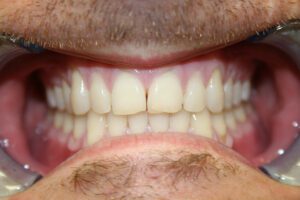 Dental scientists have been trying to find a vaccine that could prevent tooth decay and formation of cavities for more than 30 years. Even with all the precautions and awareness, almost 70% of teenagers receive three or more cavities by the time they are 16 or 17 years of age. This alarming percentage calls for an alternative and more helpful way to prevent tooth decay in children. The faculty members at Harvard Medical School have recently been able to discover the basis for a vaccine that could prevent this condition by stopping decay-causing bacteria to stay in the mouth. This vaccine would be administered by inhaling through the nasal cavity. It has been found that this vaccine increases antibody response and decreases the amount of decay-causing bacteria namely Streptococcus mutans in the mouth.
Dental scientists have been trying to find a vaccine that could prevent tooth decay and formation of cavities for more than 30 years. Even with all the precautions and awareness, almost 70% of teenagers receive three or more cavities by the time they are 16 or 17 years of age. This alarming percentage calls for an alternative and more helpful way to prevent tooth decay in children. The faculty members at Harvard Medical School have recently been able to discover the basis for a vaccine that could prevent this condition by stopping decay-causing bacteria to stay in the mouth. This vaccine would be administered by inhaling through the nasal cavity. It has been found that this vaccine increases antibody response and decreases the amount of decay-causing bacteria namely Streptococcus mutans in the mouth.
Bacteria found in the mouth feed on carbohydrates that we consume and as they break down sugar, they manufacture a substance called lactic acid. This acid is the main cause of cavities as it dissolves calcium phosphate found in tooth enamel. If not controlled in due time this process damages the teeth and eventually causes tooth decay. The vaccine works by introducing a new substance known as an antigen into the body. Immunity is improved when the body starts making antibodies as a response to these antigens. In case of dental caries, the antigen is called glucosyltransferase or GTF. This enzyme causes the bacteria to stay longer in the mouth, thereby triggering the immune system to produce antibodies to fight these bacteria and remove them from the mouth.
Since this vaccine triggers immunity in saliva, it has to be administered from the nasal cavity. Dental scientists believe the individual should be vaccinated at the age of one right after baby teeth start to appear. The required antibodies are produced by the child’s immune system even at this small age. The vaccine has still not been implemented in humans due to several reasons. First of all, many believe that cavities should be prevented by regularly brushing your teeth and avoiding too much sugar. Moreover, this condition is very much treatable through minor procedures available at a dental clinic and therefore an expensive vaccine is not required.
However, looking at the numbers we find that people, especially teenagers are not being able to fight tooth decay. A vaccine that could provide safety against this undesirable condition is very much needed. But at the same time, it is to be noted that not everybody would be able to afford such a vaccine particularly the third world population. So, the effective way is to stay away from sweets that cause cavities and to brush and floss your teeth regularly. Moreover, one should see a dentist every now and again to have a regular check-up performed in order to pinpoint any oral problems before they cause further complications.

